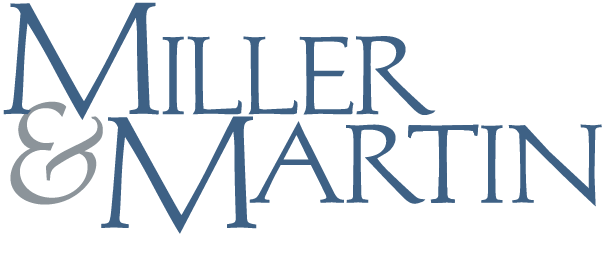The Corporate Transparency Act is Coming: What You Need to Know About Compliance
Miller & Martin PLLC Alerts | October 02, 2023
Authors: Mattias Jannerbo | Alan Madison | Michael Marshall | Bruce McCall | Evan Sharber
The Corporate Transparency Act (the “CTA”) is a new federal law enacted to combat money laundering, tax fraud, and other illegal activities. The CTA will require a substantial number of business entities to report information regarding their “beneficial owners” to the Treasury Department’s Financial Crimes Enforcement Network (“FinCEN”) through a not-yet-operational website known as the Beneficial Ownership Secure System (“BOSS”). Entities formed prior to January 1, 2024, will have until January 1, 2025, to report. However, all entities formed on or after January 1, 2024, must submit their reports within 30 days after the entity is formed.
Many businesses will be impacted by the new requirements of the CTA, which are continuing to be fleshed out. To prepare, we recommend that our clients familiarize themselves with the reporting obligations of the CTA and establish internal protocols and procedures for collecting beneficial ownership information and for reporting updates to BOSS when such information changes.
UPDATE: New Compliance Guide
On September 18, 2023, FinCEN published a Small Entity Compliance Guide (click here for guide) to assist the business community in complying with the new reporting rules.
Reporting Requirements
The CTA requires that any domestic entity created by the filing of a document (with the Secretary of State or a similar office), or any foreign entity registered to do business in any state, and which is not exempt (each such nonexempt entity, a “Reporting Company”) must provide the following information to BOSS:
- the Reporting Company’s full legal name and any trade name or “doing business as” name(s);
- for a Reporting Company with a principal place of business in the U.S., the street address of such principal place of business; and, in all other cases, the primary location in the U.S. where the Reporting Company conducts business;
- the jurisdiction of formation;
- the taxpayer identification number issued by the IRS; and
- information regarding the Reporting Company’s Beneficial Owners and Company Applicants (as such terms are below defined).
A “Beneficial Owner” is an individual who directly or indirectly (a) exercises substantial control over the Reporting Company or (b) owns or controls at least twenty-five percent (25%) of the ownership interests of such Reporting Company. An individual is deemed to be a Beneficial Owner by virtue of exercising substantial control over a Reporting Company where such individual: (i) serves as a senior officer; (ii) directly or indirectly, has authority to appoint or remove a senior officer or a majority of the board of directors (or similar body); and/or (iii) directly or indirectly, otherwise directs, determines, or has substantial influence over important decisions made by the Reporting Company. All Reporting Companies will have at least one Beneficial Owner.
A Reporting Company must provide the following information regarding its Beneficial Owners:
- full legal name;
- date of birth;
- residential street address; and
- a copy of a photo identification document (non-expired passport, driver’s license, etc.).
A Reporting Company also must provide information to FinCEN on each of its Company Applicants. Regardless of whether the individual works for the Reporting Company or is its professional service provider, a “Company Applicant” is (i) the individual who files the document creating the Reporting Company (e.g., the charter or articles of organization) and/or (ii) the individual primarily responsible for directing or controlling the filing of the formation document. Up to two individuals may be a “Company Applicant” in the Reporting Company filing to BOSS. Companies formed prior to January 1, 2024, do not need to report Company Applicant information.
Required reporting information for Company Applicants is identical to that required of a Beneficial Owner, except that a Company Applicant doing such work as part of such individual’s employment would report the Company Applicant’s place of business rather than a personal residential street address.
Exemptions
The CTA contains numerous exemptions from its reporting requirements. Generally, the idea is that the CTA is intended to apply to organizations that are not otherwise subject to federal oversight. Among the exemptions are those for publicly traded companies and “large operating businesses” (20 or more full-time employees in the United States with an operating presence in a physical office in the United States and more than $5 million in annual gross revenue in the previous year), certain investment vehicles, tax-exempt entities, accounting firms, banks and credit unions. Entities that do not require the filing of a document with a Secretary of State in connection with their formation, such as sole proprietorships, general partnerships, and common trusts, are not subject to the CTA.
Duty to Update
Reporting Companies have an ongoing duty to provide updated reports within 30 days after a change to previously reported information regarding the Reporting Company or any of its Beneficial Owners (e.g., a Beneficial Owner moves to a new address; there is a change in Beneficial Owners; there is a change in principal address of the Reporting Company, etc.) or if it becomes aware that a previous report contained inaccurate information. There is no ongoing duty to update changes in Company Applicant information.
Penalties for Failure to Report and Update
FinCEN guidance provides that the willful failure to report complete and updated beneficial ownership information may result in civil penalties up to $500 for each day that the violation continues or criminal penalties including imprisonment for up to two years and/or a fine of up to $10,000. Although FinCEN’s guidance states that it “does not expect that an inadvertent mistake” would be a willful violation of the CTA, civil and criminal penalties may apply to senior officers of the Reporting Company at the time of such violations or to individuals who cause such violations by refusing to provide information necessary for the Reporting Company to report or by knowingly providing false information.
Next Steps
We recommend our clients consider taking the following steps to prepare for the CTA’s implementation:
- Determine whether your entity is a Reporting Company not otherwise subject to an exemption.
- Develop internal policies and procedures to ensure compliance with the CTA’s requirements.
- Identify and inform Beneficial Owners.
- Gather information to be reported.
- Develop procedures for monitoring for changes to reported information.
We Can Help
For more information on how to determine whether your company is a Reporting Company and how to prepare for the implementation of the CTA, contact your Miller & Martin attorney or any of the members of our Corporate Transparency Act Working Group, which includes Evan Sharber, Matt Jannerbo, Bruce McCall, Mike Marshall, and Alan Madison.
The information and opinions in this bulletin are intended for general guidance only and do not constitute legal advice or a solicitation to provide legal services. This communication does not create a lawyer-client relationship and is not intended as a recommendation for specific situations. As always, readers should consult a qualified attorney for legal guidance. Should you need assistance from a Miller & Martin attorney, please call 1-800-275-7303. Miller & Martin will not be responsible for advising clients of whether they are subject to the CTA or with respect to their obligations under the CTA unless we agree (or have already agreed) in writing to the lawyer-client relationship and agree in writing to a scope of services related to the CTA.

